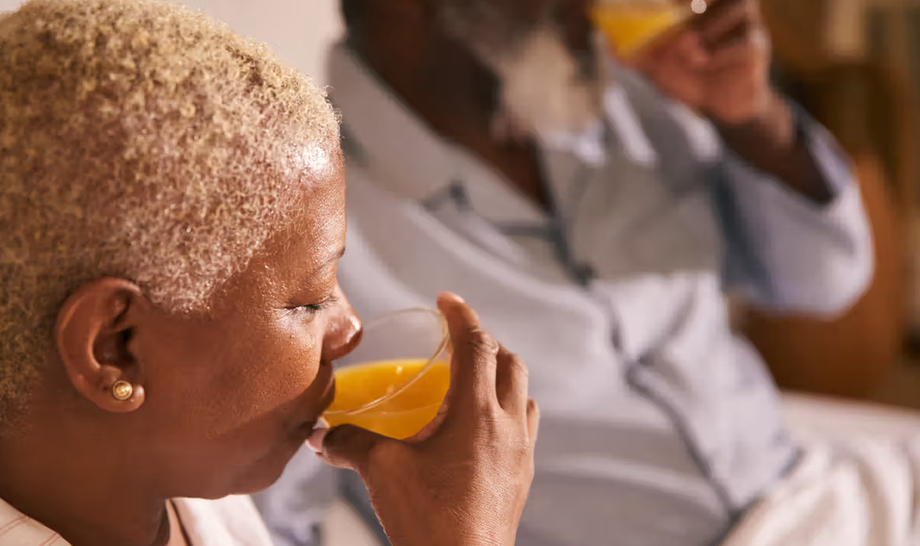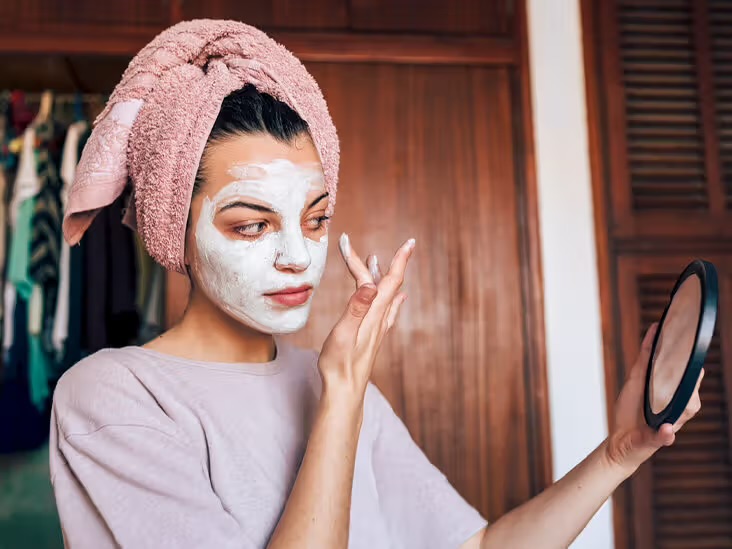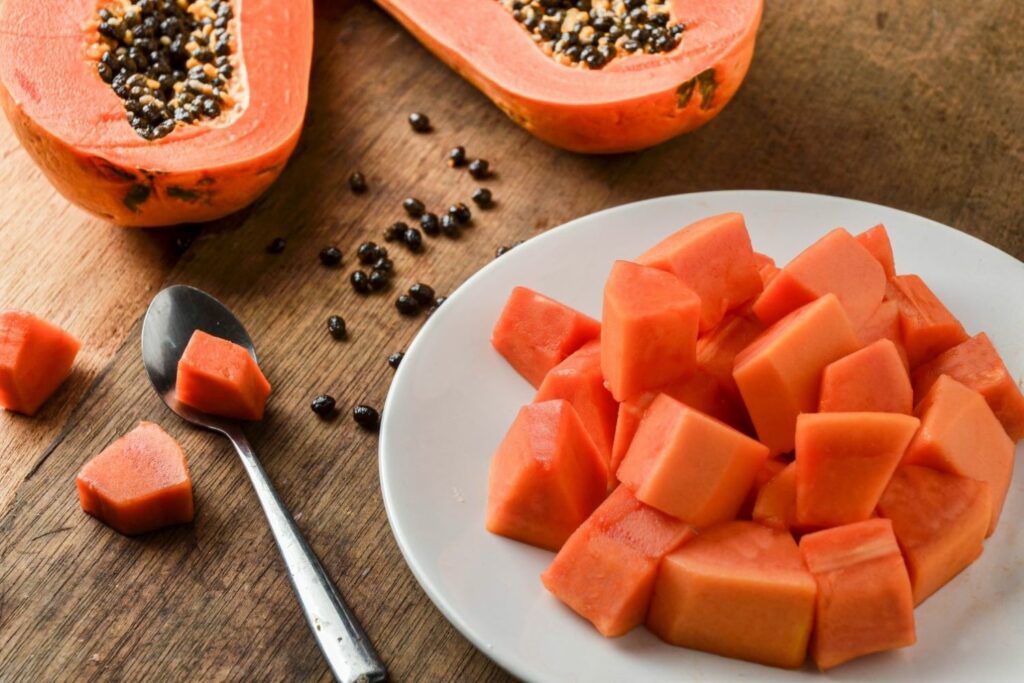Can a ’Cortisol Cocktail’ Actually Reduce Stress? Here’s What Experts Say

If you’ve been scrolling through TikTok or Instagram lately, you might’ve noticed a wellness trend that’s taken the sleep and self-care community by storm: the “cortisol cocktail.” Promoted by health influencers and bedtime routine enthusiasts, this fizzy drink promises to calm your nerves, improve sleep, and help regulate your stress levels.
The ingredients? A blend of magnesium powder, coconut water, and citrus juice with optional additions like pink Himalayan salt or sparkling water. Together, this mocktail is marketed as a natural support for the nervous system and a boost for adrenal health. But how true are these claims? Can sipping a glass of this trendy tonic before bed truly impact your cortisol levels, or is it just another viral placebo?
Let’s dive into what nutrition experts and science actually say about the cortisol cocktail.
What Is the Cortisol Cocktail, Exactly?
The “cortisol cocktail” is a homemade beverage made with a few easily accessible ingredients:
• Magnesium powder or supplement
• Coconut water
• Citrus juice (usually lemon or orange)
• Optional: pink Himalayan salt, sparkling water
The idea behind the drink is to replenish nutrients that may become depleted during stress and support adrenal function. Cortisol, a hormone produced by the adrenal glands, plays a major role in how the body responds to stress. So, the theory is: manage your cortisol, manage your stress.
Does Magnesium Really Help Reduce Stress?
While there’s no direct scientific evidence that the cortisol cocktail itself lowers stress, magnesium, one of its key ingredients, does have a solid scientific reputation.
“Magnesium is a powerhouse nutrient responsible for hundreds of biochemical processes in the body,” says nutritionist Beth Edwards, speaking to Healthline.
According to Edwards, stress depletes magnesium levels rapidly, and we excrete more magnesium through urine during high-stress periods. Supplementing it may help restore balance.
Additionally, Amie Parry-Jones, another nutrition expert, referenced a 2020 study suggesting magnesium may help reduce elevated cortisol levels, particularly in individuals with magnesium deficiencies.
Electrolytes and Vitamin C: What Role Do They Play?
Citrus Juice: A Dose of Vitamin C
Orange or lemon juice in the mocktail offers a small dose of vitamin C, a vital nutrient for adrenal health and immune function.
“Vitamin C supports the stress response and adrenal function,” Edwards explains. “The adrenal glands utilize it quickly, so maintaining optimal levels is key.”
However, Parry-Jones cautions that most studies showing benefits used high-dose vitamin C supplements; much higher than what’s found in a splash of citrus juice.
Coconut Water: Electrolyte Replenishment
Coconut water, naturally rich in potassium and electrolytes, may help address electrolyte imbalances, which are sometimes exacerbated by high cortisol levels.
Yet, experts agree that these benefits are likely mild at best, especially in healthy individuals not undergoing electrolyte loss from extreme stress or exercise.
Potential Downsides of the Cortisol Cocktail
While it may look harmless even healthy; the cortisol cocktail isn’t a magic potion. In fact, it could potentially disrupt your sleep or digestion.
1. Blood Sugar Spikes
“Sugars from orange juice are absorbed quickly due to the lack of fiber,” Parry-Jones explains.
A rapid glucose spike before bed can lead to a crash later in the night, triggering restlessness, sweating, or even insomnia. And ironically, poor sleep leads to elevated cortisol the next day; exactly what the drink is supposed to fix.
Expert tip: If you’re going to try it, consider having it earlier in the day and pair it with a meal to mitigate sugar spikes.
2. Digestive Discomfort
Adding sparkling water to your cortisol cocktail may make it fizzy and fun, but it can also lead to bloating, reflux, or gas particularly before bed.
“Any digestive discomfort at night could interfere with sleep quality,” says Parry-Jones.
So, Does the Cortisol Cocktail Really Work?
Short answer? Not really; at least not in the way it’s being advertised.
“The cortisol mocktail sounds fun, but it’s highly unlikely to lead to any real results in reducing cortisol or stress in the long term,”says Parry-Jones.
Edwards agrees, adding, “The cocktail might support an optimal stress response, but the dosage is low and the effect is minimal.”
In other words, while the individual nutrients may help maintain overall health, the cocktail’s impact on cortisol is too weak to rely on especially if stress is chronic or severe.
What Actually Helps With Cortisol and Stress?
Both experts agree that no one drink will fix your stress. Real stress management requires a holistic lifestyle approach:
• Regular exercise
• Consistent sleep schedule
• Balanced nutrition
• Mindfulness, therapy, or meditation
• Personalized healthcare plans
“Look at the bigger picture,” Edwards says. “Don’t rely on quick fixes like a bedtime mocktail.”
And if you do feel calmer after drinking it?
That could be the placebo effect; a psychological boost from believing you’re doing something good for your body. It’s not necessarily bad, but it’s also not sustainable.
Final Verdict: Is the Cortisol Cocktail Worth Trying?
The cortisol cocktail is unlikely to cause harm for most people; as long as it’s consumed wisely and not in excess. It might even serve as a relaxing nightly ritual, especially if paired with other healthy habits like journaling, stretching, or screen-free time.
But don’t expect miracles.
If you’re battling stress, anxiety, or sleep disruption, speak to a healthcare provider about more evidence-based interventions.



.png)
